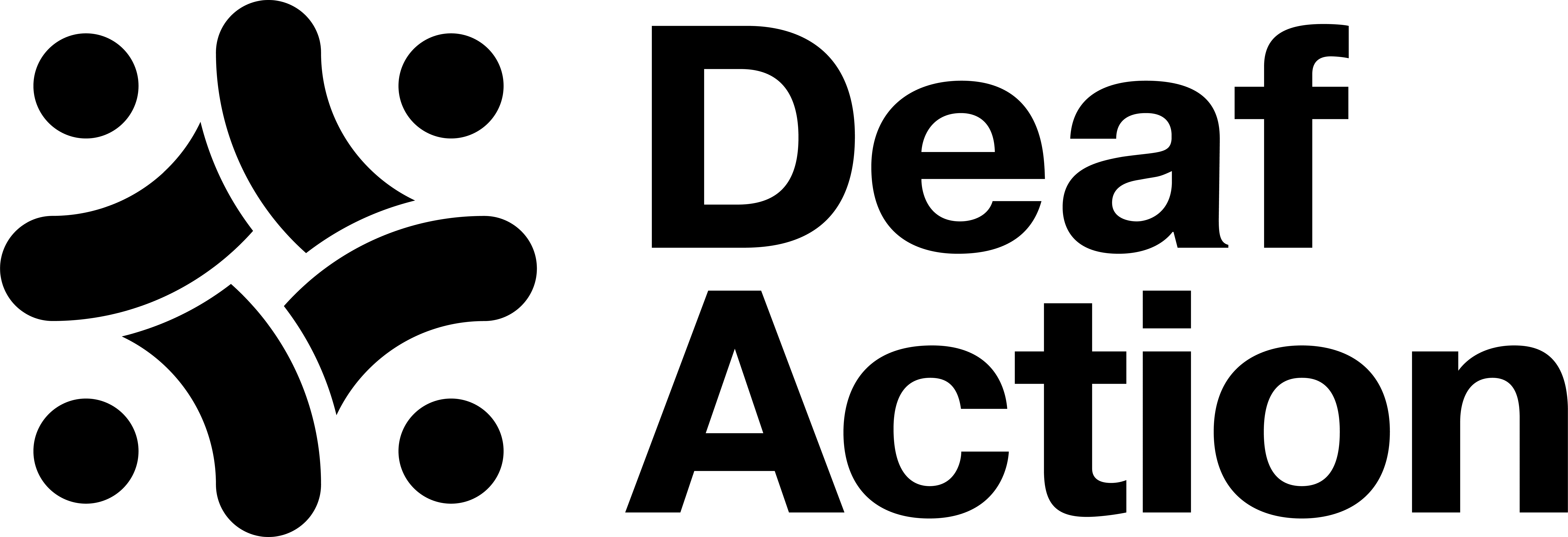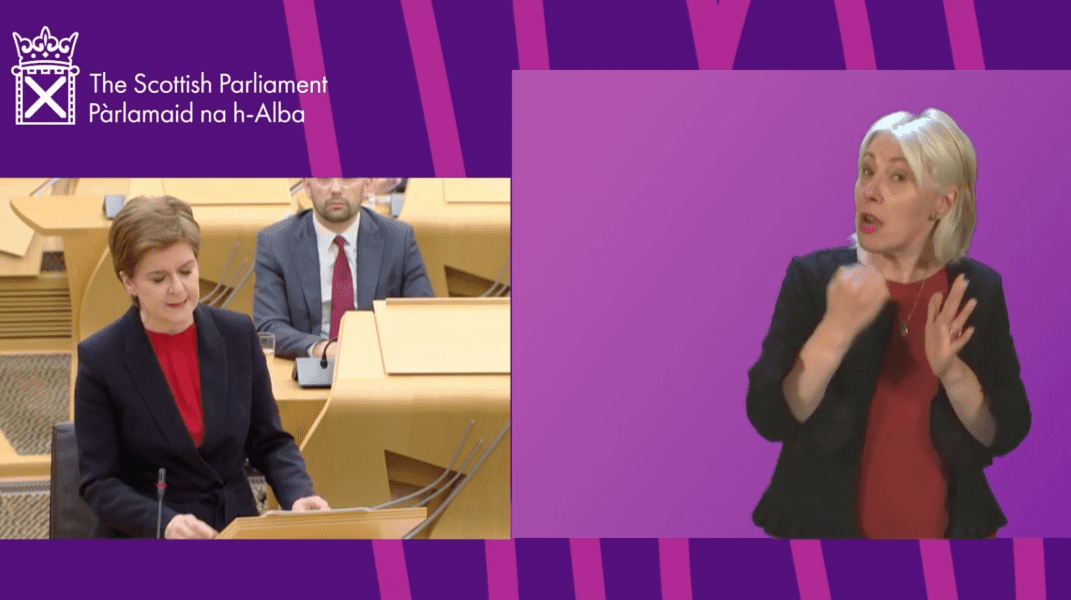Meet Shaurna. She’s been a registered interpreter for over 20 years and currently manages Deaf Action’s Communication and Interpreting Agency. Shaurna has a wealth of experience in various interpreting scenarios, ranging from GP appointments to job interviews to interpreting at the Scottish Parliament.
During the pandemic, most of Shaurna’s work shifted online, using Zoom and Microsoft Teams. She is delighted to be doing more face-to-face work, however, she is still working a mixture of the two.
Why did you become an interpreter?
My husband’s sister is a deaf BSL user. When I met her many years ago, I wanted to be able to communicate with her, so I started to learn BSL from her and from books, then I eventually joined BSL classes. Once I realised how much I enjoyed learning BSL, I decided to undertake my interpreter training. I have always loved the language because of how expressive and visual it is. I was very expressive when I was talking growing up, so it was a perfect fit!
What does a typical day look like?
No two days are the same. One morning I could be at a GP appointment then in Parliament for the First Ministers Questions by the afternoon. Another day I could be at a funeral followed by online training for an employee workplace. There is a variety of jobs, therefore, I am never bored!
Why is accessibility important?
Accessibility is crucial so that deaf people can fully participate in their own lives and within society. For example, having access to health care is a basic human right that deaf people should have equal opportunity. Being able to understand what is happening at your children’s school or with their health is another example of required accessibility.
How can workplaces improve accessibility for deaf people?
Being deaf aware is a good place to start which can be achieved through research or deaf awareness sessions. Gaining an understanding of deafness and small changes that can make the workplace more inclusive allows deaf people to be a full member of the team. There is equipment that can assist alarms as well as Access to Work (ATW), which is a government run scheme that funds additional support that a deaf person may require (such as a BSL/English interpreter). If all staff can learn some basic BSL, this would make the workplace an inclusive and friendly environment for deaf staff.
What’s the favourite part of your job?
Being able to provide access and see people laughing, smiling, questioning knowing that they have all the information. Seeing parents laugh at their child’s school show; someone smiling remembering memories about a loved one at a funeral; being able to ask questions about their treatment after diagnosis. There have been so many stories and situations over the last 20 years, it’s difficult to pick my favourite part.

